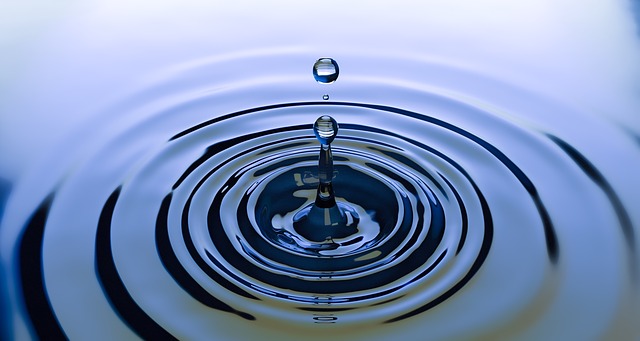In an earlier post, I talked about our loss of attention through the “fire hose” of continual information dissemination and the incessant temptation of social media. I mentioned that one of the costs of this overload and overwhelm is a loss of the capacity to achieve “flow” – a state of total immersion, energizing involvement and continuous enjoyment when undertaking a meaningful endeavour.
On reflection after writing this post, I realised that I achieve flow in two arenas of my life, one resulting in the intermittent experience of flow and the other involving a sustained flow experience – also known as “being-in-the zone”. The two arenas of my life where I achieve some degree of flow are (1) playing social tennis and (2) researching and writing this blog.
Achieving flow while playing social tennis
What I have found while playing social tennis is that I experience periods of “flow”, sometimes during a set and other times during a point. My “preparation ritual” includes Tai Chi and this enables me, among other things, to focus on my opponent hitting the ball, observing the spin and trajectory of the shot, noticing the location of other players and choosing a return shot that takes into account this focused information. Invariably, when I make a mistake, it is because I have been distracted by what is going on at other nearby courts (e.g. coaching lessons), resulting in my losing attention.
My experience of flow while playing social tennis is episodic – with one exception many years ago when I achieved the experience of being-in-the-zone over two complete sets. This early experience involved a sustained sense of flow with heightened enjoyment as a result of my seemingly, easy competence with all tennis strokes – e.g. serve returns on forehand and backhand, lobs, smashes and serving (including a second serve ace which shocked me and my opponent).
Normally, however, I experience flow during tennis when I play a particular point during a game. It can involve a long rally, a well-placed drive or a winning volley. Sometimes, I play a shot that my opponents/partner marvel at, e.g. a half-volley drop shot or a half-volley backhand lob diagonally across the court when both opponents are at the net. In these circumstances, my body is reacting instinctively, not consciously, and I am playing a shot that I have neither been taught nor have practised. This experience is often described as achieving “unconscious competence” – you don’t have to think about shot making, it just comes naturally without any conscious intervention. I attribute this instinctive response and the episodic experience of flow to my remote preparation (many years of playing and practising tennis) and my proximate preparation ritual which involves Tai Chi.
Achieving flow while researching and writing
I can relate to Johann Hari’s experience of achieving flow when researching and writing. Johann described this in detail in his latest book, Stolen Focus: Why You Can’t Pay Attention. I started researching and writing the Grow Mindfulness Blog in July 2016. I have now written more than 660 blog posts – on my calculation, in excess of 350,000 words. I started out having difficulty writingmore than 400 words. Now I find I have to discipline myself to keep each post to around 1,000 words or less (with the exception of top-of-the-head posts like this one). I find writing my blog posts easy, enjoyable and productive (I can use some of the material in my manager development workshops). I lose all sense of time and can easily create a blog post non-stop for 2 to 3 hours (I have to discipline myself to take a break after an hour). This indicates that when writing my blog posts I can achieve flow or be lost “in-the-zone”.
I think two core things have contributed to my ability to achieve flow while researching and writing the blog. Firstly, I have chosen a focus for the blog – mindfulness – that has become a massive area of development worldwide – in health, business, education, sports and community. There is now an endless stream of podcasts, research papers, articles, blogs, online conferences/summits, and readily accessible mindfulness practices such as tradition-based meditations and mantra meditations. My research area, growing mindfulness, is a treasure trove of ideas and practices and endlessly rewarding. Each “upturned stone” reveals a new area for exploration.
Secondly, besides the limitless resource material available for research and developing my own practice, I have unconsciously instituted what Johann describes as the three pre-conditions for achieving flow – adopting a single focus, pursuing meaning and extending myself (through acquiring and sharing new knowledge and mindfulness practices). I have to use discipline to maintain my particular focus for a blog post when researching because of the volume of material available ( I draw on a skill I developed when researching and writing my PhD – noting down for later research ideas or resource people that are interesting but not directly related to my focal topic). I also learnt a couple of years ago that, if I wanted to get into flow and stay in flow, I had to avoid reading my email before or during the process of writing (removing another possible source of distraction). One think that does help my focus during writing is music, either specific Mozart music for concentration or mantra meditations by Lulu & Mischka.
Hugh Van Cuylenburg mentions a further pre-condition for achieving flow – a preparation ritual -which he describes in his book, Let Go. I have adopted this practice for my writing endeavours (as well as my social tennis). I often do my research – listening, reading or trying a meditation practice – as part of my preparation ritual. This gives me a flow of ideas. I will then “sleep on it” overnight and let my subconscious mind go to work to identify connections and expand on the ideas. I write my blog post the following morning (I am a “morning person” – mornings are when I am most productive). In this way, I am able to produce connections to previous posts I have written and/or researched, my past and current experiences, topical information, excerpts from novels I am reading, and conversations I have had. These connections “just come to me”.
Reflection
In addition to the proximate preparation rituals I adopt for playing tennis and writing my blog, I also engage in regular mindfulness practices, including Tai Chi and different forms of meditation (including mantra meditations). These practices also extend to mindful eating and “mindful waiting”. In this way, I try to develop what George Mumford describes as a “mindfulness mindset” – achieved through adopting a variety of mindfulness practices appropriate to particular settings and time available. These can incorporate “micro-practices”, forming part of a self-care plan. As we adopt regular mindfulness practices, we can grow in mindfulness and achieve the realisation of flow in various arenas of our life and our different endeavours. This can enhance our happiness and sense of who we are and contribute to achievement of our life purpose.
_________________________________
By Ron Passfield – Copyright (Creative Commons license, Attribution–Non Commercial–No Derivatives)
Disclosure: If you purchase a product through this site, I may earn a commission which will help to pay for the site, the associated Meetup group, and the resources to support the blog.

